Gardening, a practice as ancient as civilization itself, has recently seen a resurgence as a cornerstone of self-sufficiency and health. Amidst the sprawling concrete of urban environments, tucking rows of green into available spaces has a profound impact. These home gardens serve not only as a source of fresh produce but also as an emblem of sustainability and a return to natural rhythms. As city dwellers increasingly embrace the spade and seeds, the promise of nutritious, home-grown foods strengthens communities and supports individual well-being.
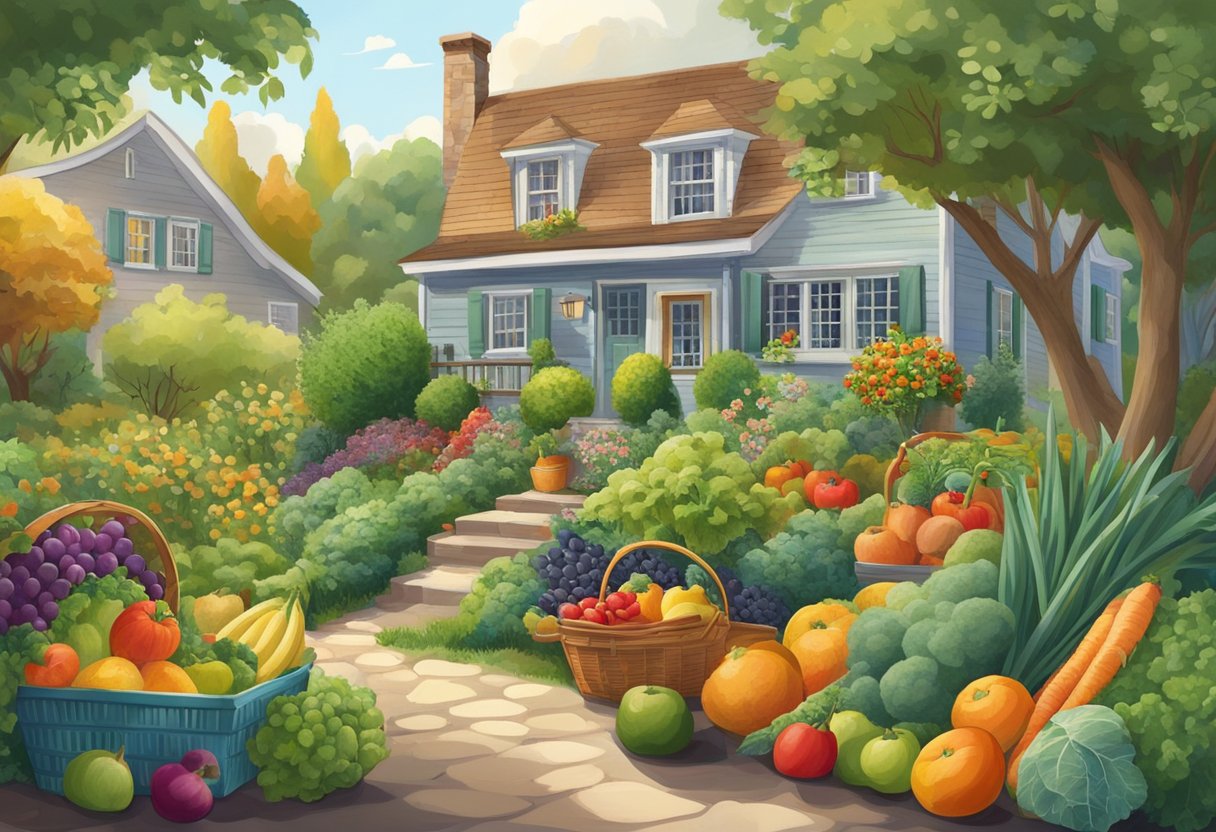
The integration of homegrown food into daily living promotes a lifestyle aligned with the values of a gluten-free Mediterranean diet, known for its health benefits. Cultivating a garden encourages the consumption of a variety of vegetables and fruits, mirroring the diversity of the Mediterranean palate, sans gluten. Furthermore, by taking control of what goes into the soil and onto their plates, gardeners can ensure food quality, reduce their environmental footprint, and enhance their connection to the earth—a bond crucial to both physical and mental health.
Key Takeaways
- Gardening enhances self-sufficiency and provides health benefits akin to those of a gluten-free Mediterranean diet.
- Home gardens contribute to sustainability and improve access to diverse, nutritious foods in urban environments.
- The act of cultivating one’s own food strengthens the connection between individuals, communities, and natural ecosystems.
Table of Contents
The Importance of Gardening in Urban Environments
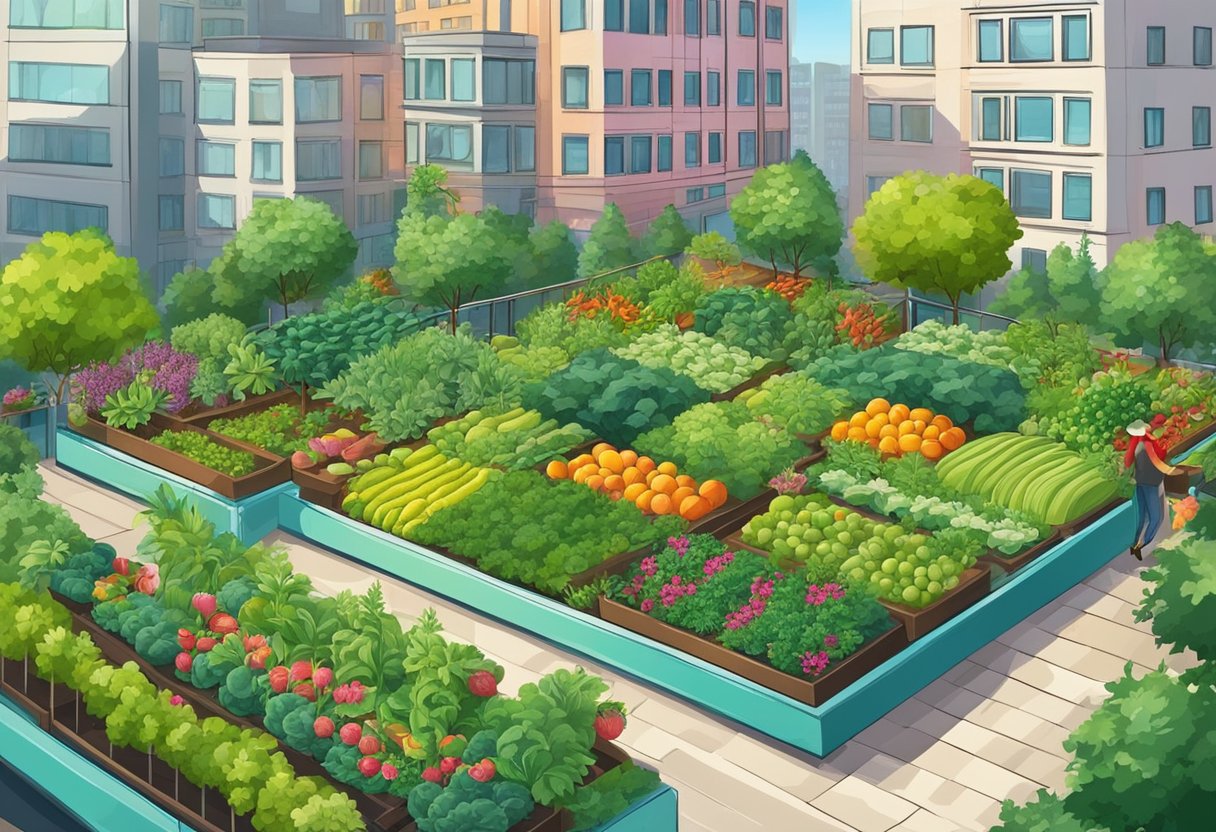
Urban gardening has become a pivotal movement in addressing some of the most pressing issues of food security and environmental sustainability in densely populated areas. It taps into the unused potential of urban spaces, offering a practical solution for cities to reduce their ecological footprint and revitalizing communities by weaving together greenery and agriculture.
Urban Agriculture and Food Security
Urban agriculture plays a crucial role in enhancing food security in cities. It enables residents to cultivate fresh produce, leading to an increased availability of nutritious food options like fruits and vegetables, which are essential for a balanced gluten-free Mediterranean diet. Rooftop gardens and community plots not only provide direct access to fresh produce but also help mitigate the effects of urban food deserts.
Eco-Friendly Practices and Sustainability
Incorporating sustainability practices through urban gardening initiatives like urban forests and green spaces, cities reduce carbon emissions and improve air quality. Gardens absorb carbon dioxide, contribute to cooling urban heat islands, and promote biodiversity. Using organic methods to cultivate food reduces reliance on chemical fertilizers and pesticides, aligning with environmentally conscious and healthy diet choices.
Community Gardens and Social Benefits
Community gardens bolster social capital as residents collaborate, share knowledge, and support one another in growing food. These gardens serve as social hubs, fostering a sense of community among participants. They provide educational spaces where people can learn about a gluten-free Mediterranean diet and the importance of fresh, whole foods. Additionally, community gardens can transform vacant lots into vibrant green spaces, enhancing the livability of urban neighborhoods.
Health Benefits of Home-Grown Foods
Home-grown foods are a cornerstone of nutritional well-being and play a significant role in promoting physical and mental health. Through the cultivation of a garden, individuals gain access to fresher produce and the opportunity to engage in an activity that benefits the body and mind.
Nutritional Advantages of Home Gardening
Home gardening offers a wealth of health benefits, particularly in terms of nutrition. Growing food at home leads to a higher consumption of fresh vegetables and fruits, which are pivotal to a gluten-free Mediterranean diet. These foods are packed with essential nutrients, vitamins and minerals, and are devoid of processed ingredients that can contribute to obesity and other health issues. For example, home-grown tomatoes provide ample amounts of vitamin C, while leafy greens such as spinach are high in iron and magnesium. The absence of gluten in fruits and vegetables also makes them perfect for individuals following a gluten-free regimen.
- Vitamin C: Crucial for immune function and skin health.
- Iron: Necessary for oxygen transport in the body.
- Magnesium: Supports muscle and nerve function.
By prioritizing the cultivation of foods rich in these nutrients, gardeners can enjoy a diet that supports overall well-being.
Physical Activity and Mental Health
In addition to the nutritional value of home-grown produce, home gardening is an excellent source of physical activity. This activity requires various levels of exertion, from gentle tasks like planting seeds to more strenuous ones such as turning compost. Regular physical activity can help combat obesity and promote cardiovascular health.
- Gardening Activities:
- Planting and weeding: Moderate intensity
- Shoveling and raking: High intensity
Moreover, gardening provides benefits for mental health. The process of nurturing plants and watching them grow can be meditative and stress-relieving. The greenery and outdoors associated with gardening can also have a calming effect, potentially reducing symptoms of anxiety and depression. As they tend to their gardens, individuals can enjoy the therapeutic effects of connecting with nature and the satisfaction that comes with self-sufficiency.
Socioeconomic Impacts of Gardening
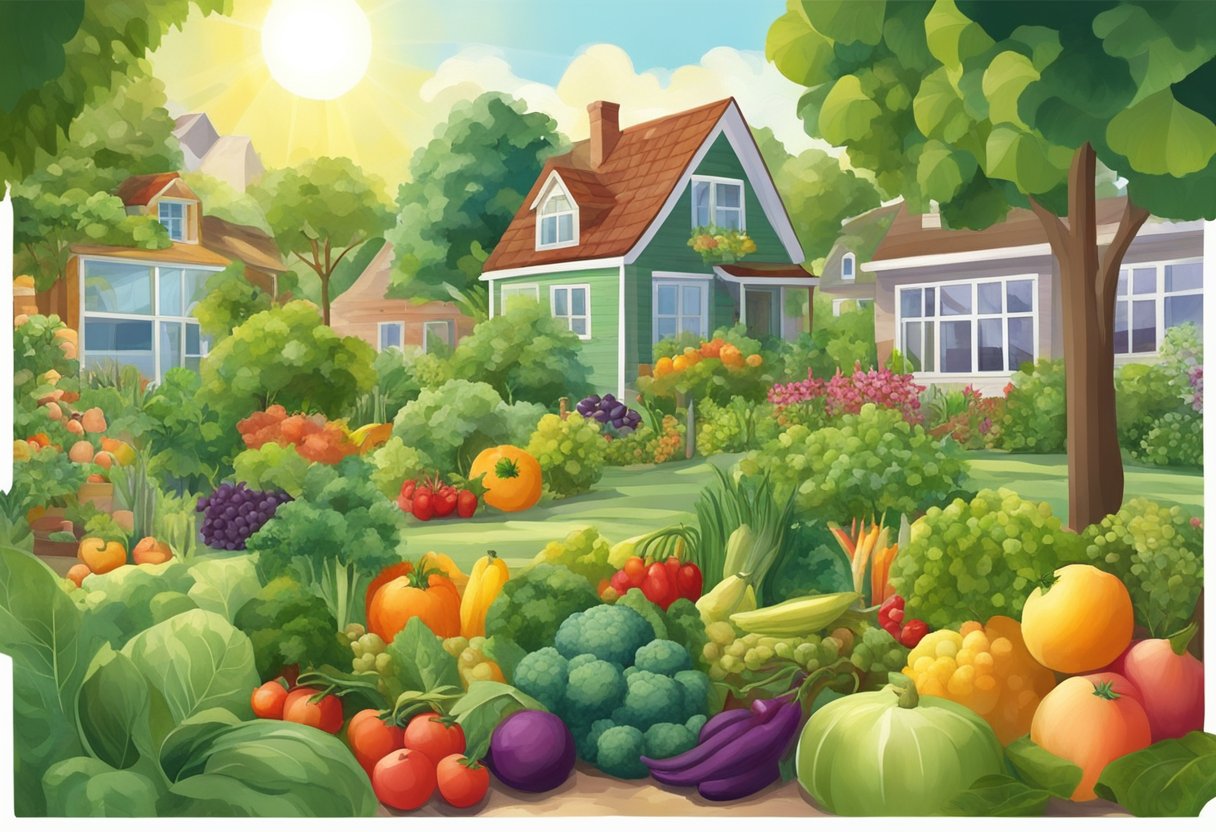
Gardening extends beyond mere aesthetics, significantly influencing socioeconomic dynamics. It enhances food sovereignty and bolsters local economies, addresses food insecurity and hunger, and can provide an additional stream of income.
Food Sovereignty and Local Economies
Gardening initiatives strengthen food sovereignty by shifting the control of food sources from global markets to local producers. Community gardens improve local food production, providing communities with the means to cultivate culturally appropriate and nutritious foods that adhere to specific dietary preferences, like a gluten-free Mediterranean diet. This localized approach reinforces the resilience of local economies, as funds remain within the community.
Reducing Food Insecurity and Hunger
Access to garden space enables households to supplement their diets, directly impacting household food security. Studies indicate that gardens, with their bounty of fruits and vegetables, play an intricate role in diminishing rates of food insecurity and hunger. The direct engagement in food production allows for immediate access to fresh produce, reducing reliance on food assistance programs.
Gardening as a Supplementary Income
Gardening transcends personal consumption, presenting opportunities for supplementary income. Individuals can sell excess produce grown in home or community gardens at local markets, contributing to household livelihoods. This income can then be used to sustain the household’s needs, including purchasing diverse ingredients to enhance a healthy, gluten-free Mediterranean diet. Moreover, community development benefits from the systemic support of such local initiatives that inherently promote community development.
Environmental Considerations in Gardening
Gardening extends beyond a mere hobby; it’s a powerful tool for environmental stewardship. Effective garden practices can conserve water, enhance biodiversity, contribute to ecosystem services, and provide sustainable solutions to climate change.
Water Conservation and Gardening
Conserving water in the garden is crucial for sustainable development. Gardeners should consider drip irrigation or soaker hoses to target water directly to plant roots, minimizing waste. Additionally, mulching helps retain soil moisture and reduces evaporation. A practice such as collecting rainwater in barrels can supplement garden watering needs, significantly reducing water use.
Biodiversity and Ecosystem Services
Enhancing biodiversity is a key benefit of thoughtful gardening. Native plants attract and sustain a variety of pollinators, beneficial insects, and birds, supporting ecosystem services like pollination and natural pest control. Diverse gardens can create mini-ecosystems, which contribute to the overall health of the area’s wildlife and plant populations.
Climate Change and Sustainable Practices
Gardening practices can positively influence the local environment and help in mitigating climate change. By incorporating organic methods, gardeners reduce the need for chemical fertilizers and pesticides, lowering carbon emissions. Plants and soil act as carbon sinks, capturing carbon dioxide from the atmosphere. Sustainable gardening thus contributes to carbon sequestration, an essential process in the fight against global warming.
Global and Local Perspectives on Gardening
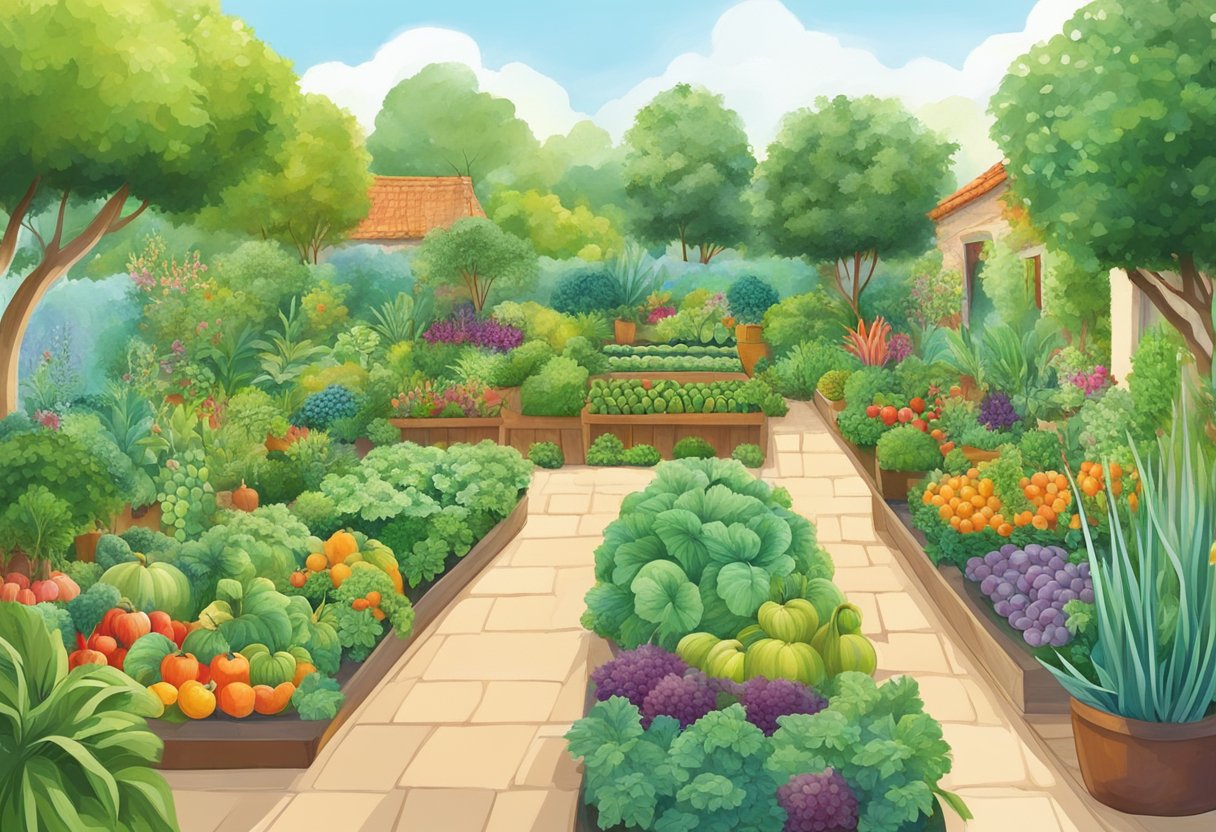
Gardening holds varying significance across the globe, impacting self-sufficiency and health at both local and international levels. This section explores its role in developing countries, the effects of globalization on food production, and the shifts in gardening practices due to urbanization.
Gardening in Developing Countries
In developing countries, gardening often serves as a vital component in supporting livelihoods and enhancing food security. With limited resources, households may turn to home gardens to produce a variety of local foods, which can be particularly beneficial for gluten-free Mediterranean diets that rely heavily on fruits, vegetables, legumes, and nuts. Such dietary patterns are inherently supported by small-scale gardening, as they provide nutritionally rich produce that contributes to a balanced diet.
The Impact of Globalization on Food Production
Globalization has led to significant changes in the agricultural landscape. While it has increased the availability of diverse food products, there is a growing concern that local food production may suffer. The global population’s demand for international products could overshadow traditional local practices, leading to a decrease in the cultivation of indigenous crops, some of which are staple components of a gluten-free Mediterranean diet such as quinoa and amaranth.
Urbanization and Its Effect on Gardening
Urbanization presents both challenges and opportunities for gardening practices. As people migrate towards cities, peri-urban agriculture becomes more common, serving as a bridge between rural farming and urban living. Despite space constraints, urban gardens can thrive, providing access to fresh produce that aligns with a gluten-free Mediterranean diet, even in densely populated areas. As the infrastructure evolves, so does the opportunity for city dwellers to grow their own food, promoting better health and environmental sustainability.
Cultural and Educational Aspects of Gardening
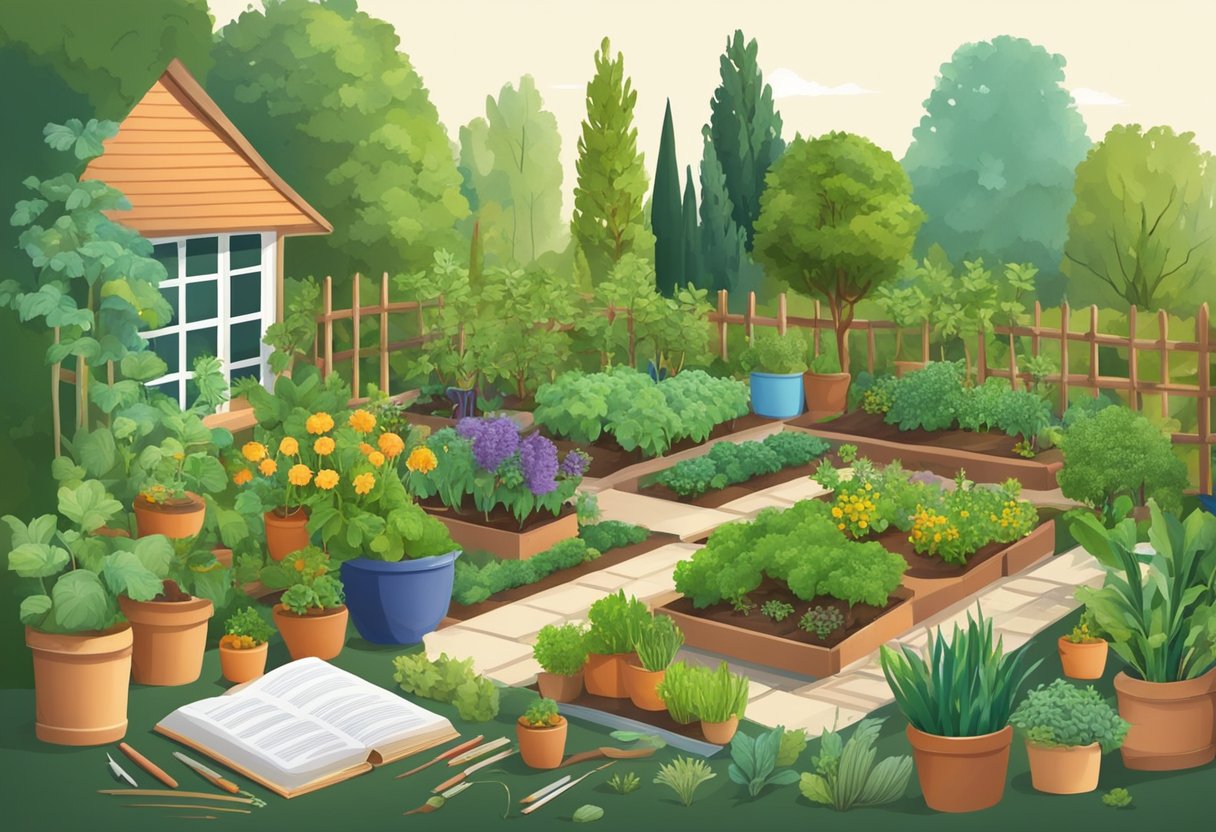
Gardening extends beyond the mere act of growing food; it is deeply entrenched in cultural heritage and education, providing a platform for self-provisioning, sharing, and fostering stronger bonds within communities.
Teaching Self-Provisioning
Self-provisioning through gardening empowers individuals with the knowledge and skills necessary to grow their own food, an activity that can be particularly beneficial for those adhering to specific diets, such as a gluten-free Mediterranean diet. This dietary pattern relies heavily on plant-based foods, many of which can be cultivated in home gardens, such as leafy greens, legumes, fruits, and herbs.
Gardening as a Cultural Practice
Gardening serves as a cultural mirror reflecting the practices and values passed down through generations. It may incorporate traditional techniques suited to cultivating Mediterranean staples such as olives and grapes, which are central to a gluten-free Mediterranean diet. Gardening thus maintains cultural identity and contributes to the preservation of agro-biodiversity.
Promoting Community and Family Relationships
Community food production through gardening creates a space for social interaction and the strengthening of family relationships. By working together in gardens, families and communities can share knowledge about growing gluten-free crops, while educational programs can further supplement this sharing, enhancing cohesion and fostering a culture of health and self-reliance.
Strategies for Expanding Home-Grown Food Initiatives
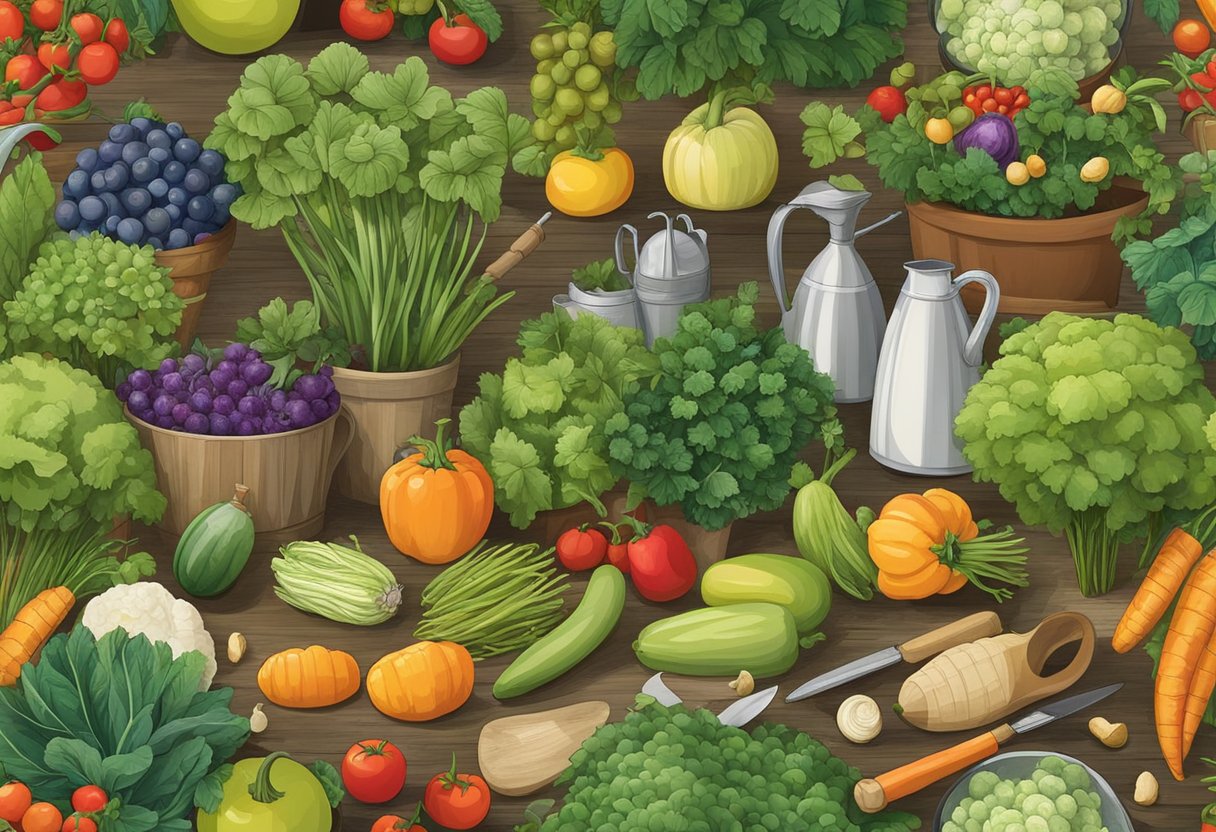
Cultivating a successful, sustainable expansion of home-grown food initiatives requires strategic actions. This section explores how institutional support, innovative gardening techniques, and overcoming urban challenges are pivotal to bolstering local food production, community development, and the growth of urban agriculture.
Institutional Support and Partnerships
Institutional support and partnerships are fundamental for advancing home gardens and community development. Organizations can facilitate workshops and provide resources that empower citizens to start their own gardens, contributing to food production and dietary wellness. Partnerships between local governments, schools, and non-profits can lead to the establishment of allotments ensuring sustained urban agriculture amidst urban sprawl. An example of this would be tailored programs supporting gluten-free Mediterranean diet options that enhance community health.
Innovations in Home and Community Gardening
Home and community gardens can benefit from innovations that make gardening more accessible and efficient, especially in urban environments. Methods such as vertical farming and hydroponics allow residents to grow produce such as gluten-free grains and Mediterranean diet staples like tomatoes and herbs irrespective of soil quality. These technologies not only conserve space but also increase yield – key aspects for self-sufficiency in densely populated areas.
Addressing Challenges in Urban Gardening
The expansion of urban gardening faces unique challenges due to limited space and resources. Strategies to overcome these obstacles include the integration of green spaces within city planning to counteract urban sprawl. Allotments can be utilized more effectively with community-led governance, ensuring fair access and use of available land. Additionally, educational outreach on gluten-free Mediterranean diet-compatible gardening can further encourage urban residents to participate in growing their own food with confidence.
Future Outlook on Gardening and Food Production
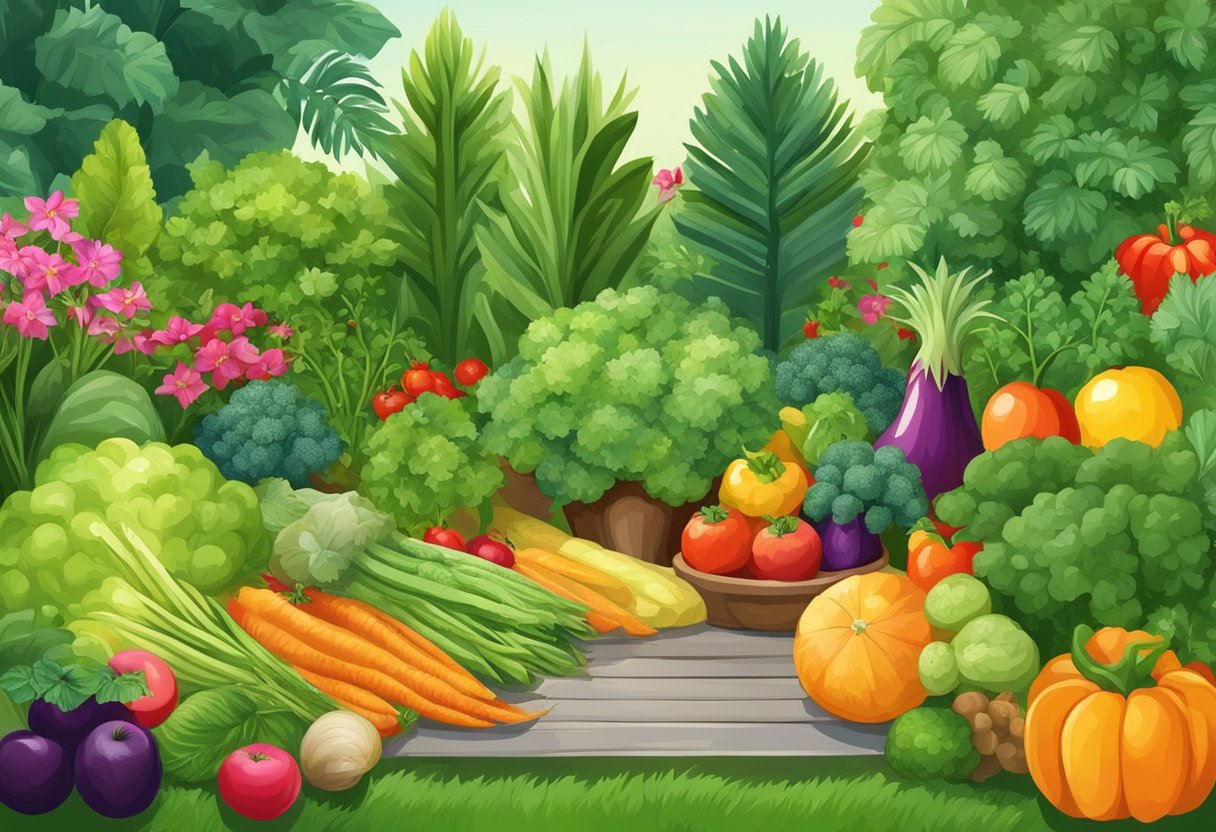
As the world looks toward the future of food production and sustainability, gardening emerges as a pivotal element with considerable influence on the fulfillment of the Sustainable Development Goals and the resilience of food systems in times of crisis.
Sustainable Development Goals (SDGs) and Gardening
Gardening is increasingly recognized as a significant contributor to the Sustainable Development Goals (SDGs), specifically regarding eliminating hunger and promoting good health. Home gardens can act as buffer stocks in communities, providing food security against global food shocks and price volatilities. They foster sustainable development by utilizing fewer resources and decreasing the dependency on large-scale agricultural systems that are often more susceptible to crises.
The Role of Gardening in Post-Crisis Recovery
In post-crisis settings, home gardening serves as an effective counter strategy to address food scarcity. It results in the stabilization of food supplies and supports the maintenance of diverse dietary needs, which are especially crucial when considering specialized diets like a gluten-free Mediterranean diet. By enhancing self-sufficiency, gardens help to cushion communities from the immediate impact of crises and aid in swifter recovery.
Technological Advances in Gardening
Technological advances in gardening, such as solar-powered irrigation systems, offer the possibility of more sustainable and efficient food production. This use of solar energy in gardening aligns with the SDGs by promoting clean energy and sustainable practices. The integration of advanced technology within gardening potentially democratizes the ability to grow food and manage food price volatilities, making self-sufficiency an achievable goal for an increasing number of people.
Frequently Asked Questions
Gardening at home is not just about the simple joys of nurturing plants; it has multi-dimensional benefits touching on nutrition, economics, food security, and overall well-being.
How can home gardening contribute to improved nutritional health?
Home gardens encourage consumption of a diversity of fresh produce which are crucial in a gluten-free Mediterranean diet. For instance, home-grown vegetables and fruits can lead to an increase in the intake of essential vitamins and minerals.
What are the economic advantages of maintaining a home garden?
They lower grocery bills by reducing the need to purchase fresh produce. Moreover, a home garden can also provide specialty crops like gluten-free grains that are otherwise expensive to buy.
In what ways does access to a home garden influence food security?
Having a home garden ensures a constant supply of food that can be cultivated and harvested according to the household’s needs, reducing dependency on external food sources and bolstering resilience against supply disruptions.
How does engaging in home gardening foster greater physical and mental health?
Activities involved in gardening such as digging, planting, and weeding provide physical exercise, which is an integral aspect of a healthy lifestyle. Additionally, the process offers psychological benefits by reducing stress and enhancing mood.
What motivates individuals to pursue home gardening and what health benefits do they perceive?
Many individuals are motivated by the desire to control the quality and variety of their diet, aligning with dietary needs such as gluten intolerance. They perceive benefits that include better nutritional health and a sense of accomplishment from growing their own food.
What are the environmental impacts and benefits of cultivating a home garden?
Home gardens contribute positively to the environment by enhancing biodiversity, improving soil quality, and promoting natural pollinator population. They also reduce the carbon footprint involved in transporting food products.



